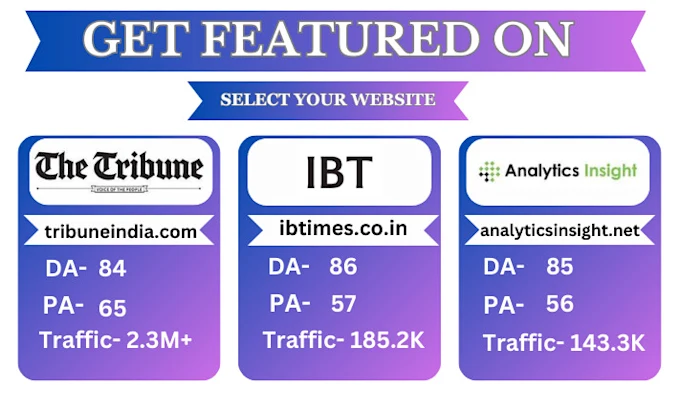EA Sports has already revealed that it will continue to release soccer games following the breakup of its association in FIFA with the title EA Sports FC. After this announcement there is a lot of hope that the next series of soccer titles from EA Sports will improve on the numerous areas that the most recent FIFA games haven't been as good. EA Sports now has the chance to review its soccer titles and redefine what a top soccer franchise can be by enhancing offline game modes and making online play more fair and improving the gameplay.
Although FIFA is the brand associated with soccer across the globe, EA Sports has made an image as the top soccer game publisher. And although recent games haven't attracted the attention of fans, it does create high-quality soccer titles. Because of its loyal fan base, EA Sports can remain certain that the majority of the players who play its FIFA games will be playing EA Sports FC. But, making sure that the games can compete with the next FIFA titles is crucial. With FIFA seeking out the other publishing houses, EA Sports FC will have to take a step in the right direction to allow EA Sports to maintain its hugely large player base.
At the root to EA Sports' problems are offline games, particularly Career Mode, that have become a monotonous frustrating, unrealistic, and often painful experience in recent FIFA games. Fans have been begging EA Sports to give them something different within Career Mode, and while EA Sports has released new features, and also added old features but it hasn't been successful in attracting its players. EA Sports FC will need to make major adjustments for Career Mode for it to keep its fans satisfied and to keep up with FIFA and the next publisher.The most recent FIFA games have featured an unsatisfactory Career Mode that looks more similar to the previous versions, with a brand new menu and improved-looking players. EA Sports FC will need to enhance several areas in order to ensure that Career Mode a more enjoyable experience, such as enhancements to training, a more effective progress system, and more deep discussions and negotiations with transfer partners. EA Sports will also need to ensure that training program is improved to influence the game in a way that it currently does. It could even work to make Create-A Club more customizable with shirt sponsors as well as the stadium's progression system, which can prevent smaller clubs from obtaining the biggest available stadium from the beginning.
FIFA offline modes have been hampered in recent times due to a lack of interest however, online modes remain EA Sports' main focus, in the displeasure of fans. While online play on FIFA is fun, poor matchmaking makes it less likely that gamers are willing to spend long hours playing these games and the numerous microtransactions raise a number of ethical concerns. EA Sports FC should not abandon the online games, but instead enhance them, and perhaps include new online co-op game modes, so that players are able to play with their buddies.
The adjustment of microtransactions must be the initial step EA Sports takes, and even though it's unlikely, the publisher must strive to limit the impact of microtransactions on players. The only way to get good players into game modes such as Ultimate Team by purchasing packs is not fair, and must be taken care of. Matchmaking has to be drastically improved so that players don't get annoyed playing with players who have an incredibly high level of skill as well. In addition adding online co-op options such as an on-line Career Mode that allows friends to play with one another can not only increase the size of the community, but also provide more motivation for players to participate in online games.
Best EA FC 25 Coins shop is MMOexp.com.
Although FIFA is the brand associated with soccer across the globe, EA Sports has made an image as the top soccer game publisher. And although recent games haven't attracted the attention of fans, it does create high-quality soccer titles. Because of its loyal fan base, EA Sports can remain certain that the majority of the players who play its FIFA games will be playing EA Sports FC. But, making sure that the games can compete with the next FIFA titles is crucial. With FIFA seeking out the other publishing houses, EA Sports FC will have to take a step in the right direction to allow EA Sports to maintain its hugely large player base.
At the root to EA Sports' problems are offline games, particularly Career Mode, that have become a monotonous frustrating, unrealistic, and often painful experience in recent FIFA games. Fans have been begging EA Sports to give them something different within Career Mode, and while EA Sports has released new features, and also added old features but it hasn't been successful in attracting its players. EA Sports FC will need to make major adjustments for Career Mode for it to keep its fans satisfied and to keep up with FIFA and the next publisher.The most recent FIFA games have featured an unsatisfactory Career Mode that looks more similar to the previous versions, with a brand new menu and improved-looking players. EA Sports FC will need to enhance several areas in order to ensure that Career Mode a more enjoyable experience, such as enhancements to training, a more effective progress system, and more deep discussions and negotiations with transfer partners. EA Sports will also need to ensure that training program is improved to influence the game in a way that it currently does. It could even work to make Create-A Club more customizable with shirt sponsors as well as the stadium's progression system, which can prevent smaller clubs from obtaining the biggest available stadium from the beginning.
FIFA offline modes have been hampered in recent times due to a lack of interest however, online modes remain EA Sports' main focus, in the displeasure of fans. While online play on FIFA is fun, poor matchmaking makes it less likely that gamers are willing to spend long hours playing these games and the numerous microtransactions raise a number of ethical concerns. EA Sports FC should not abandon the online games, but instead enhance them, and perhaps include new online co-op game modes, so that players are able to play with their buddies.
The adjustment of microtransactions must be the initial step EA Sports takes, and even though it's unlikely, the publisher must strive to limit the impact of microtransactions on players. The only way to get good players into game modes such as Ultimate Team by purchasing packs is not fair, and must be taken care of. Matchmaking has to be drastically improved so that players don't get annoyed playing with players who have an incredibly high level of skill as well. In addition adding online co-op options such as an on-line Career Mode that allows friends to play with one another can not only increase the size of the community, but also provide more motivation for players to participate in online games.
Best EA FC 25 Coins shop is MMOexp.com.
EA Sports has already revealed that it will continue to release soccer games following the breakup of its association in FIFA with the title EA Sports FC. After this announcement there is a lot of hope that the next series of soccer titles from EA Sports will improve on the numerous areas that the most recent FIFA games haven't been as good. EA Sports now has the chance to review its soccer titles and redefine what a top soccer franchise can be by enhancing offline game modes and making online play more fair and improving the gameplay.
Although FIFA is the brand associated with soccer across the globe, EA Sports has made an image as the top soccer game publisher. And although recent games haven't attracted the attention of fans, it does create high-quality soccer titles. Because of its loyal fan base, EA Sports can remain certain that the majority of the players who play its FIFA games will be playing EA Sports FC. But, making sure that the games can compete with the next FIFA titles is crucial. With FIFA seeking out the other publishing houses, EA Sports FC will have to take a step in the right direction to allow EA Sports to maintain its hugely large player base.
At the root to EA Sports' problems are offline games, particularly Career Mode, that have become a monotonous frustrating, unrealistic, and often painful experience in recent FIFA games. Fans have been begging EA Sports to give them something different within Career Mode, and while EA Sports has released new features, and also added old features but it hasn't been successful in attracting its players. EA Sports FC will need to make major adjustments for Career Mode for it to keep its fans satisfied and to keep up with FIFA and the next publisher.The most recent FIFA games have featured an unsatisfactory Career Mode that looks more similar to the previous versions, with a brand new menu and improved-looking players. EA Sports FC will need to enhance several areas in order to ensure that Career Mode a more enjoyable experience, such as enhancements to training, a more effective progress system, and more deep discussions and negotiations with transfer partners. EA Sports will also need to ensure that training program is improved to influence the game in a way that it currently does. It could even work to make Create-A Club more customizable with shirt sponsors as well as the stadium's progression system, which can prevent smaller clubs from obtaining the biggest available stadium from the beginning.
FIFA offline modes have been hampered in recent times due to a lack of interest however, online modes remain EA Sports' main focus, in the displeasure of fans. While online play on FIFA is fun, poor matchmaking makes it less likely that gamers are willing to spend long hours playing these games and the numerous microtransactions raise a number of ethical concerns. EA Sports FC should not abandon the online games, but instead enhance them, and perhaps include new online co-op game modes, so that players are able to play with their buddies.
The adjustment of microtransactions must be the initial step EA Sports takes, and even though it's unlikely, the publisher must strive to limit the impact of microtransactions on players. The only way to get good players into game modes such as Ultimate Team by purchasing packs is not fair, and must be taken care of. Matchmaking has to be drastically improved so that players don't get annoyed playing with players who have an incredibly high level of skill as well. In addition adding online co-op options such as an on-line Career Mode that allows friends to play with one another can not only increase the size of the community, but also provide more motivation for players to participate in online games.
Best EA FC 25 Coins shop is MMOexp.com.
0 Σχόλια
0 Μοιράστηκε
23χλμ. Views
0 Προεπισκόπηση









